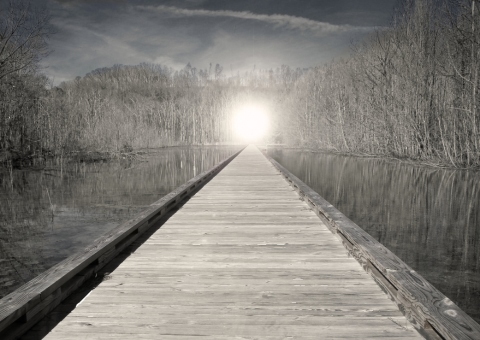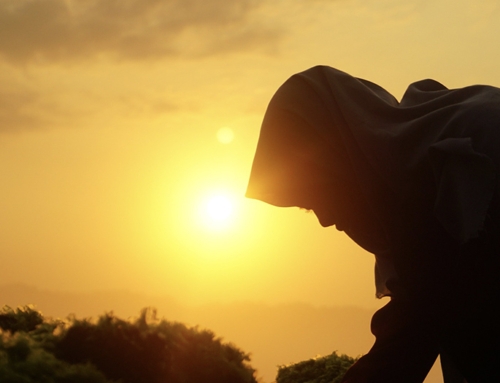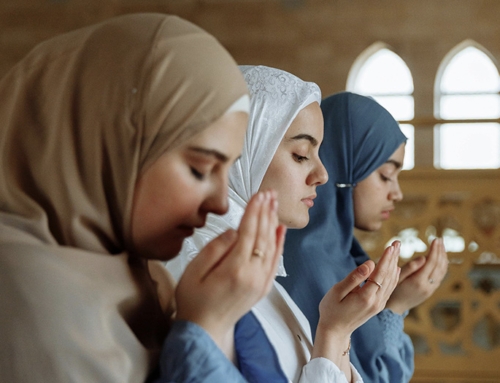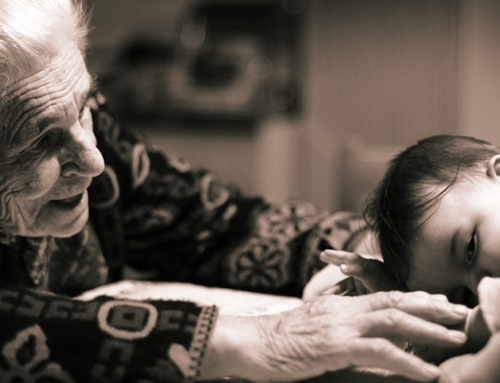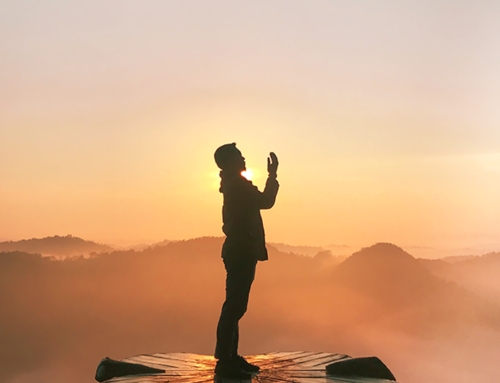By: Shaylene Haswarey
My interest in comparing Mormonism and Islam started during my senior year of high school in 1998, but my journey learning about my Mormon roots started much earlier.
Journal Entry, Saturday, July 16, 1994, age 13: I had one of the best days of my life today! I went to the Salt Lake Temple with the young men and women (church group), and I truly want to be a part of the Church. We watched the movie Legacy at Temple Square. I watched how the Mormon Pioneers struggled to get to Salt Lake with great faith. I want to start going to church every Sunday and be like my ancestors.
This was the start of my journey being an active member of The Church of Jesus Christ of Latter Day Saints (Mormons or LDS). My grandparents were the only family members who were active in the church. I grew up going to church occasionally, and going to youth activities. After my church trip to Salt Lake, I admit I became an unusual teen who faithfully read the Bible, The Book of Mormon, and Doctrine and Covenants. I helped my grandmother research our genealogy, and was fascinated by my extraordinary Mormon background. Several of my ancestors left Europe to join the Mormons in Salt Lake City, UT. I had ancestors who accepted Mormonism while personally listening to Joseph Smith. James Dayley, my fifth grandfather, was a bodyguard for Joseph Smith. James witnessed the infamous Haun’s Mill Massacre where sixteen Mormons were brutally martyred, including his father-in-law, Thomas McBride. After the massacre, the Mormons fled to Independence, Missouri where persecution started again. James was beaten by a mob forcing him to deny the prophethood of Joseph Smith. My grandfather was brave and never denied Joseph Smith. After Joseph Smith was murdered in Nauvoo, Illinois, my grandfather and his family followed Brigham Young to the Salt Lake Valley, and finally stopped in Oakley, Idaho. He remained a faithful Mormon to the end, and died at the age of ninety-four.
I felt fortunate with the strong family background I was blessed with! How can I go against my ancestors who sacrificed their previous lives and homes in the name of God? I wanted to continue the legacy of my ancestors by being active in the church, and doing the will of God. It was hard as a young teenager going to church by myself and seeing other families sitting together, but I reminded myself I was doing this for God, and that my ancestors went through persecution and martyrdom.
I thank myself for becoming active in the LDS Church as a young teen. The LDS Church emphasizes moral standards such as no alcohol, no gambling, and no intimacy until marriage. I am confident had I not been active in the church, I would have violated many of the standards.
When I was seventeen, I had the privilege of meeting friends on the internet who were from all over the world. Growing up in Idaho Falls, there was not a lot of diversity, and I was always fascinated by the outside world. I came across Muslims on the internet and was interested in their beliefs.
During my senior year of high school, I decided to read the Quran out of curiosity of wanting to understand what my online Muslim friends believe. At the same time, I was in my final year of high school LDS seminary. The LDS Church has a seminary for students starting in ninth through twelfth grade. Each year, the focus was on a different holy book and during my senior year we studied the Doctrine and Covenants.
The Quran had a lot of similarities with the Doctrine and Covenants (D&C). The D&C is a book of revelations given to Joseph Smith. The Quran is a book of revelations by God given to Prophet Muhammad (peace be upon him), through the Angel Gabriel. There were verses similar to the D&C regarding the prohibition of alcohol, gambling, and permitting polygamy.
My seminary teacher had to bring up the ‘taboo’ LDS topic of polygamy. It was a practice of the LDS Church until 1890. If you ask Mormons in general about polygamy, they tend to show embarrassment or disgust. I personally never thought of polygamy in that regard. James Dayley had two wives and a total of eighteen living children. His first wife, my fifth grandmother, was getting ill, and felt her life was coming to an end. They had a nanny for their children, and she asked him to marry her, so that when she passed, the children would have a mother. She passed away four years after he married his second wife. When I read the verse in the Quran about men being able to marry up to four wives as long as he can equally take care of all of them, or it’s best if a man only has one wife, it was relatable to Mormonism.
While reading other books about Islam and talking to my Muslim friends on the internet, I realized family values and no intimacy until marriage were similar in both faiths. It was comforting to know there was another religion that was like my own.
I started reading Islamic history, and I understand why some historians call Joseph Smith the Muhammad of the West. Muhammad (peace be upon him) had a similar story to Joseph Smith, and the first Muslims were persecuted like my ancestors. When I read about the first martyr in Islam, Sumayya, it reminded me of when my sixth grandfather, Thomas McBride, was martyred. The more I read about the similarities between Islam and Mormonism, the more I was intrigued by Islam and wanted to continue studying it.
There was one difference in Islam and Mormonism that convinced me to become a Muslim. In Mormonism, Jesus is the Son of God, but in Islam, Jesus is a prophet of God. When I read about Jesus in the Quran and books about Islam, everything fit like a puzzle and made sense. I miraculously found a Muslim couple while visiting a bookstore and told them my story. They invited me to their home for Friday prayers. On Friday, July 2, 1999, I took my Shahada.
I am blessed that Allah guided me to Islam, and I have never forgotten my ancestors who were the best examples to give me the courage to stand up for the Truth. I encourage my LDS brothers and sisters to look into Islam. I pray everyone will discover the truth and accept Prophet Muhammad (peace be upon him), as the final messenger of God.
Got Questions?
We have Answers. Get in touch now.


